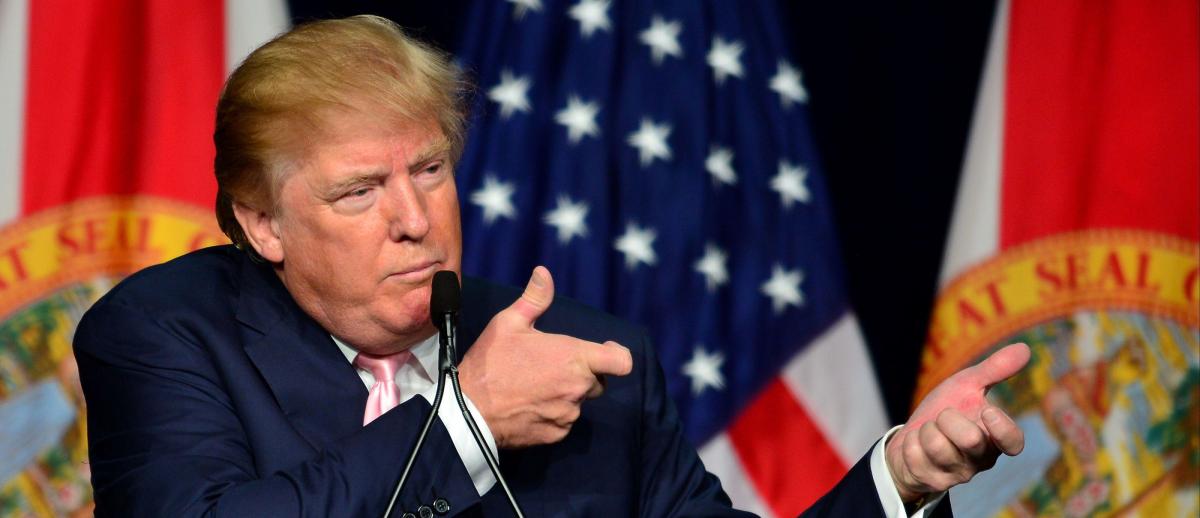Teflon Populism: Will it Slip or Falter?
archive


Teflon Populism: Will it Slip or Falter?
“He sees to it that nothing sticks to him.” In a 1983 speech, American Congresswoman Pat Schroeder used these words to describe a “Teflon President.”1 The President in question was Ronald Reagan, but the phrases she coined aptly describe Donald John Trump. They also capture an important aspect of the political phenomenon we now know as populism. Nothing seems to stick to President Donald Trump—neither overwhelming evidence of corruption and nepotism, nor a parade of women each plausibly accusing him of sexual abuse, nor even repeated proofs of gross incompetence in office. The world's other populist leaders also seem to have been coated in Teflon; even as they have implicated themselves in scandal after scandal, they have continued to enjoy high approval ratings. In his recent piece in global-e, Vittorio Bufacchi argues that their disastrous response to the COVID-19 pandemic might finally be the scandal that sticks to populism and its leaders. Bufacchi writes that the “pandemic may expose the underlying weakness and long-term inadequacy for effective political leadership of these core populist positions.” I suspect, however, that even the pandemic will slide off populism’s Teflon coating.
Consider, as an example of that coating, Trump's infamous campaign statement: “I could stand in the middle of Fifth Avenue and shoot somebody and I wouldn't lose any voters.” This was scary because it rang true: some leaders, in fact, have the ability to get away with genuinely atrocious conduct. This Teflon quality seems to come from two sources: first, a style of political discourse and personal action aimed at keeping followers continuously mobilized (a style that hits so low that it cannot disappoint anyone, nor sink any lower); second, a strategy of deploying the core followers’ support as a smokescreen to distract from the destruction of institutions from within.
During his 2016 presidential run, Trump engaged in political discourse that would have doomed other candidates' campaigns. For him, though, the gutter discourse became a trademark that increased his popularity. As President, Trump has gotten away with verbal antics that would have been unthinkable in the past— from blatant lying, to obscenity. This has gone hand in hand with the constant mobilization of the base. By jumping from rally to rally and pouring a constant stream of provoking tweets into the national discussion, he has managed to keep attention on himself and activate a spring-like tension within his ranks. This has helped him to get away with countless borderline illegal acts, including nepotism, corruption, incompetence, and racist dog whistle calls. Mobilization raises the stakes, and makes supporters believe that total support is required to win an existential battle at every turn.
But it seems that the Teflon effect is not only a result of his personal style and his continuous campaigning (always rallying for war, even in time of peace), it is also due to an orchestrated effort to weaken democratic institutions. Trump’s administration has sawed off the organizational braces of American democracy by understaffing his own government and firing any dissenters in the bureaucratic ranks.2 Moreover, he has preempted attacks from the opposition by legally armoring the executive branch against constitutional checks and balances. He has launched a legal campaign for the executive’s “absolute immunity,” and tried to etch in public discourse the idea that the president is above the law. These two forces (constant mobilization of his base and institutional weakening) allow him to get away with unacceptable behavior. This surfaced again during the coronavirus crisis when, for example, he insisted that the disease is “just a cold” and asserted, based on a “hunch”, that the death rate is “just a fraction of one percent.” He furthermore recommended that people take unproven remedies and encouraged health officials to conduct research on truly bizarre treatments, such as injecting patients with disinfectants. During the crisis the President has erratically invoked his vast power to intervene in consequential deliberations about health care and the economy. In general his performance has been riddled with lies and claims that should inspire distrust and make his incompetence obvious … and yet, his approval ratings remain strong and steady.3
The high approval ratings despite the odds may seem appropriate for Donald Trump—a reality TV star and a tabloid personality. But both the mobilization through bombastic style and the systemic institutional weakening are also characteristic of a wider a trend of personalistic authoritarian politics around the world. Other leaders have also seen to it that nothing sticks to them by using the same tactics that work for Trump. This has been true during the pandemic, regardless of how each leader reacted to the crisis. Like Trump, Mexico’s Andrés Manuel López Obrador pretended at first that nothing was going on. Even as his own health authorities recommended that people stay at home, he staged rallies, shook hands, and kissed children on national TV. He even recommended that people hug each other and fight the virus with religious images. Yet, now several months into the crisis, even as he tightens austerity measures to deal with the economic fallout of the pandemic, his approval rating is still showing a solid majority.4 Brazil’s Jair Bolsonaro also reacted breezily to the disease, calling it “a little flu.” And while his approval numbers did fall, they still hover within two percentual points of what they had been before the crisis.5
Mobilization raises the stakes, and makes supporters believe that total support is required to win an existential battle at every turn.
Surprisingly, those populist leaders who reacted in exactly the opposite way, that is, those who overplayed the crisis’s danger, also got support. In Hungary, Viktor Orbán used the coronavirus emergency to pass a law that allows him to rule indefinitely by decree. Recep Tayyip Erdogan in Turkey has used the crisis to increase authoritarianism. In India, a brutal lockdown that was instituted within hours of its announcement did nothing to diminish Narendra Modi’s popularity. Rodrigo Duterte of the Philippines has enforced the toughest measures during the lockdown—even declaring that those who disobey his government’s orders should be shot dead—and yet his supporters nevertheless approve of his management of the pandemic.6 In sum, it seems that the tolerance to unacceptable behavior in populist politicians is a global trend. In all these cases, voters accept conduct that most people can rationally acknowledge to be morally and politically reproachable. Across the world we can see instances of the gap between what people know to be good policy and what they are willing to accept from the populist leader.
Despite these trends, Bufacchi argues, “It is possible that COVID-19 may have exposed the soft underbelly of populist politics.” For him, this could be the beginning of the end of populism because “if we have learned anything from the last few months, it must be that unity and not division will see us through the crisis” because “in times of crisis people look for and demand skillful leadership, not bombastic jokers,” and also because a closed-border nationalism “may be untenable post-crisis.” While I agree with Bufacchi that populism is not a tenable position in the long term, I am not sure that this crisis shows that to voters. In fact, I think they knew it already. Supporters of Teflon politicians do not focus on how tenable are their arguments, nor on how sound are their policies, or on how conducive they are to the community’s wellbeing. While Bufacchi’s three reasons make perfect sense, the Teflon effect shows that, lately, claims in the name of the ethical sense do not “stick.” In general, the Teflon politician effect reminds us that we cannot assume that because something ought to happen, it will.
Supporters of Teflon politicians do not focus on how tenable are their arguments, nor on how sound are their policies, or on how conducive they are to the community’s wellbeing.
Authoritarian populism ought not to succeed. It is divisive and it politicizes in order to generate a constant mobilization of the leader’s base. It also weakens from within the institutions that are required to sustain the rule of law. It seems clear that these are “untenable” trends, but in fact, populism has always been untenable because it is self-contradicting: it invokes “the people” as a normative standard because it includes everybody; yet populism defines dissenters as outside of the people. Populism is untenable because it polarizes, creating power by pitting “the real people” against its enemies, which in turn makes even the most trivial matters into issues of constitutional importance. “We the people” now becomes the ground of every minute administrative decision, thereby politicizing all aspects of public administration—including technical matters such as public health. Populism, then, is untenable because it undermines the very institutions and infrastructure on which it relies. And yet, it succeeds, like an all-consuming fire, taking institutions down as it spreads.
There are many hypotheses about why so many voters knowingly choose an untenable position at the polls.7 However, most agree that there are structural reasons why voters are willing to take such risks. So, while I am not in a position to predict politics in the aftermath of the pandemic, I can extrapolate from lessons learned in the last decade. Although a crisis is always an opportunity to act and reorganize, this won’t happen spontaneously. The effort must be preceded by an inspiring vision offering a real alternative to current patterns of social and political organization. The crisis alone does not provide or reveal anything new, and, unfortunately, it does not give me reasons to be hopeful. However, I do expect that after the current plague subsides, a new effort at political organization may begin to crack and chip away populism’s Teflon.
1. History, Art & Archives, U.S. House of Representatives, “Schroeder, Patricia Scott,” May 26, 2020. https://history.house.gov/People/Listing/S/SCHROEDER,-Patricia-Scott-(S000142)/
2. On problems of understaffing, see:
https://www.nytimes.com/2020/03/26/us/politics/coronavirus-expertise-trump.html
3. See: https://www.nytimes.com/2020/04/30/technology/trump-coronavirus-social-media.html
On Trump’s approval ratings, see: https://projects.fivethirtyeight.com/trump-approval-ratings/
4. See: https://oraculus.mx/aprobacion-presidencial/
(Poll of polls. May 26)
5. See: http://datafolha.folha.uol.com.br/opiniaopublica/2020/04/1988648-aprovacao-a-ministerio-da-saude-cresce-enquanto-sobe-reprovacao-a-bolsonaro-na-crise-do-coronavirus.shtml
6. See: https://thediplomat.com/tag/duterte-approval-rating/
See also:
https://www.voanews.com/economy-business/why-filipinos-support-presidents-extended-virus-containment-shutdowns-despite
7. Kirk Hawkins, Madelaine Read, and Teun Pauwels. “Populism and its Causes” in Cristobal Róvira Kaltwasser, Paul Taggart, Paulina Ochoa Espejo and Pierre Ostiguy The Oxford Handbook of Populism. Oxford: Oxford University Press, 2017.



